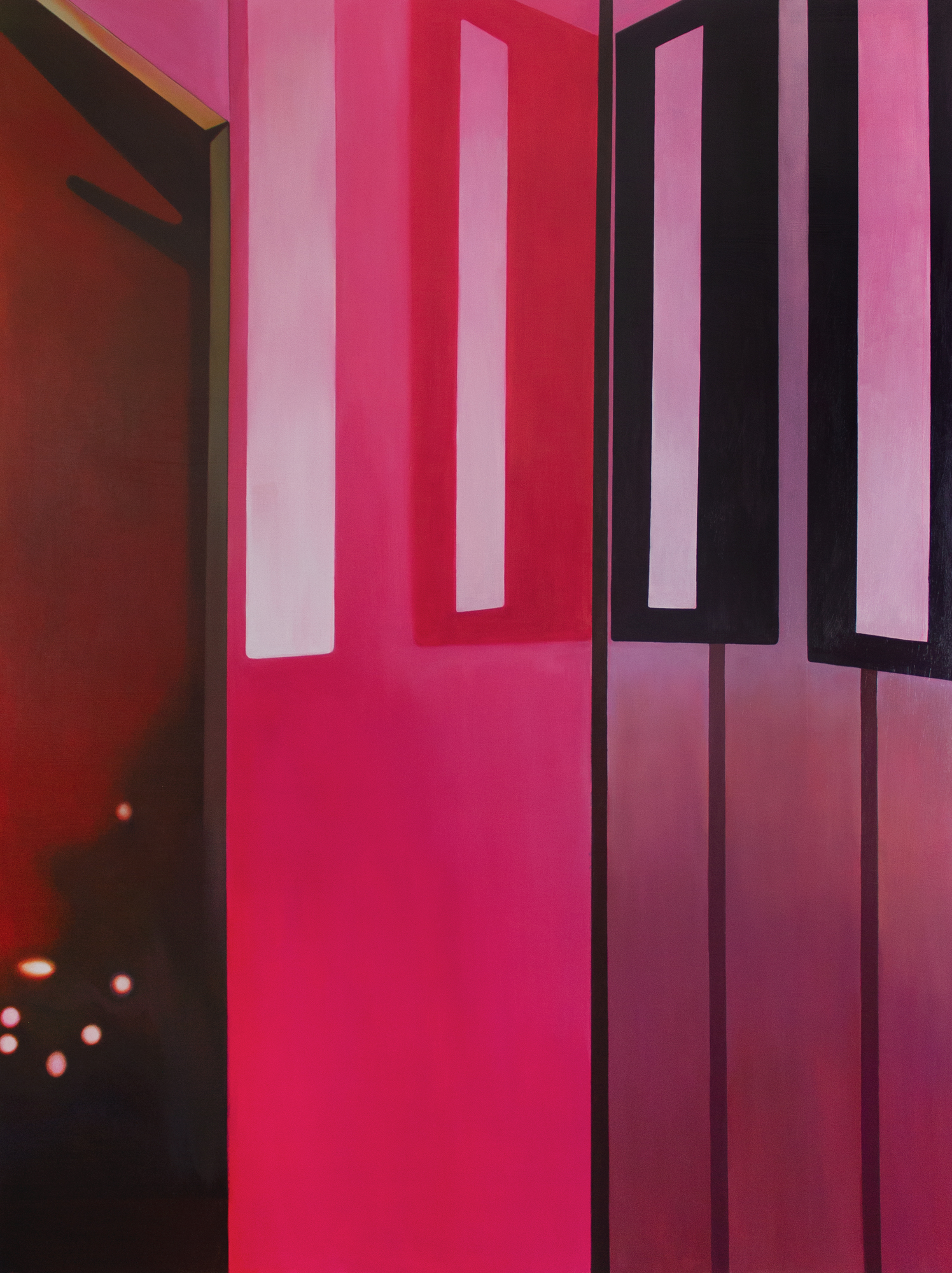
Slow Burn
oil on panel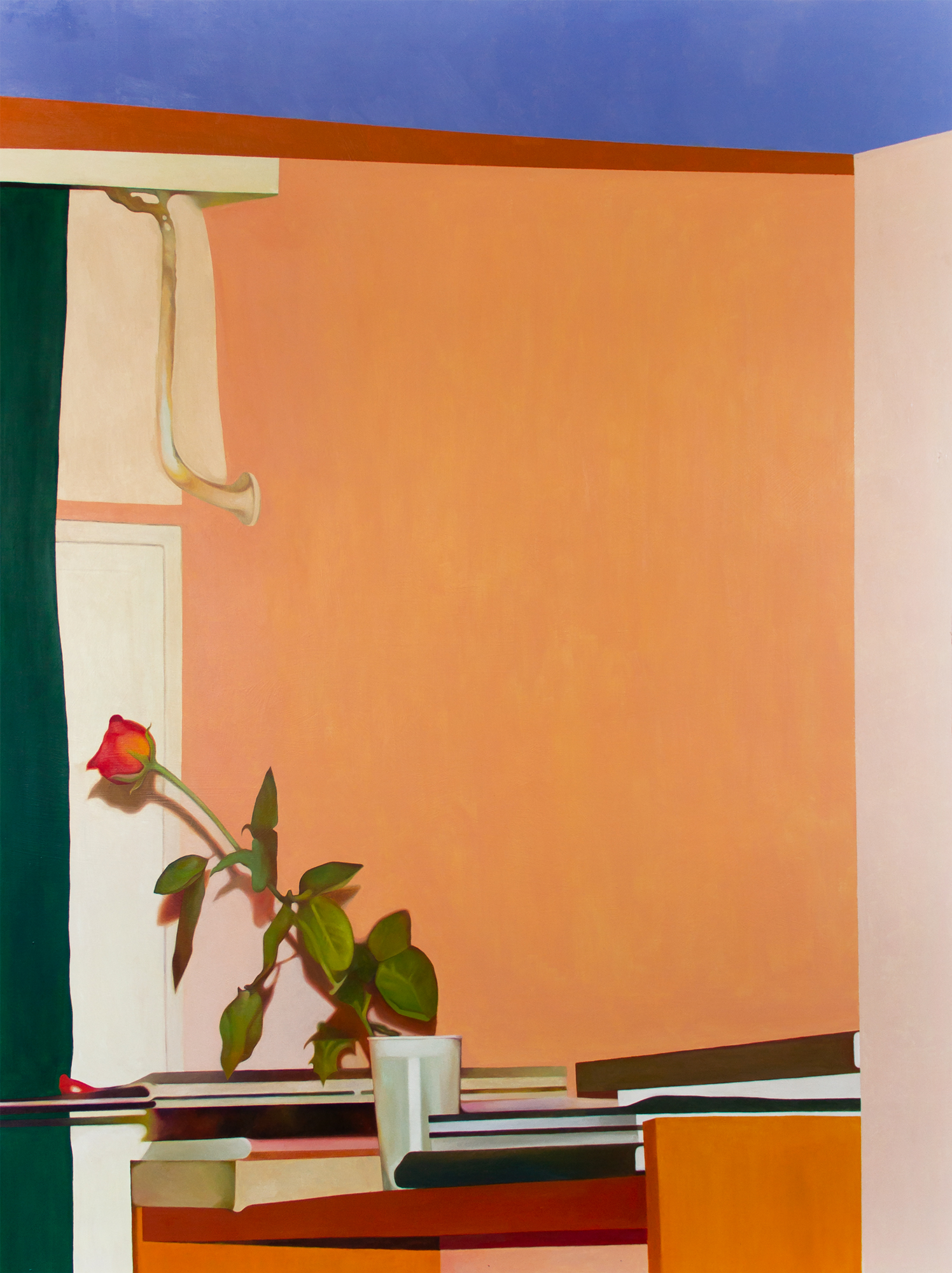
This is the Beginning
oil on panel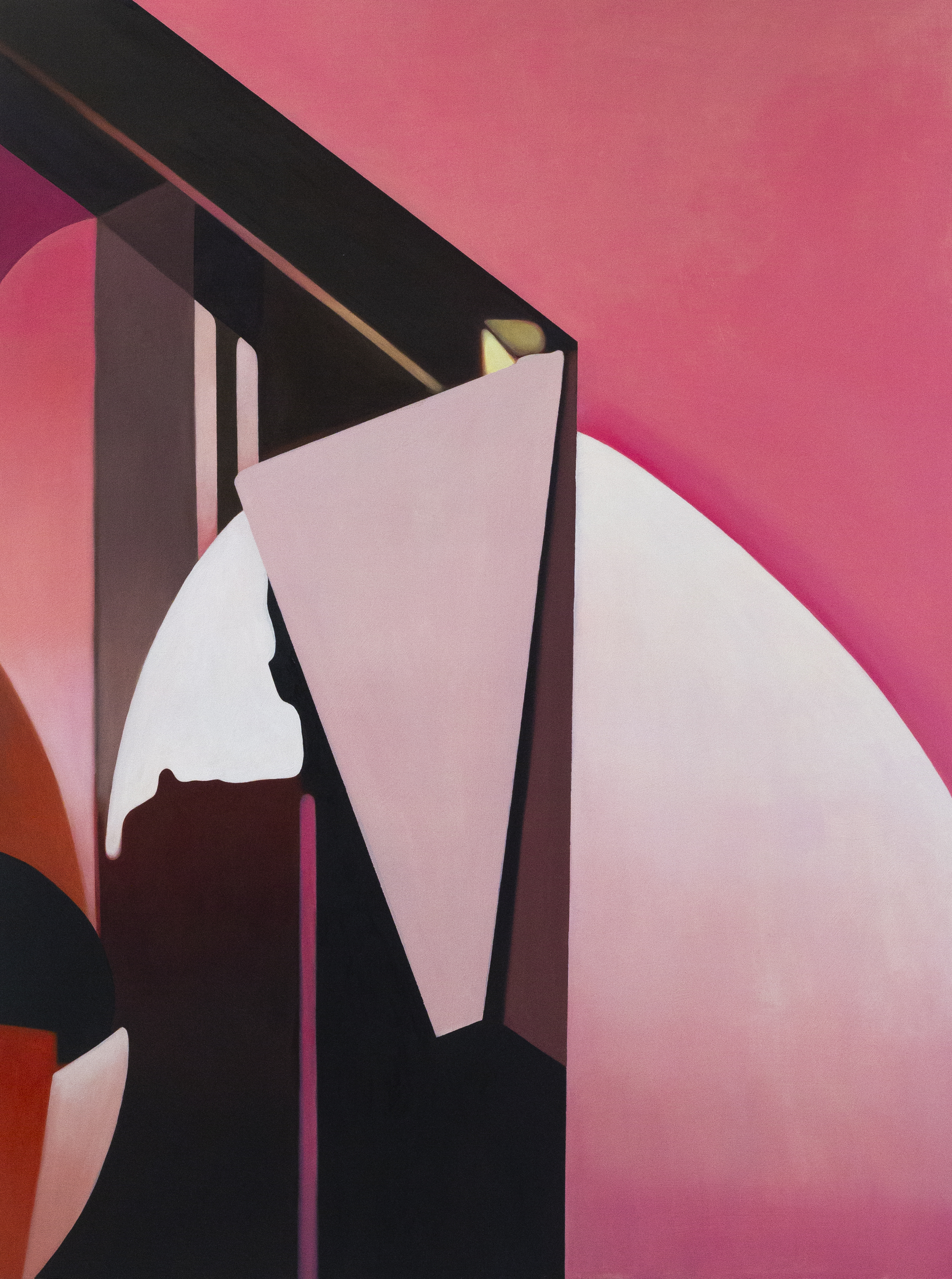
You’re No One
oil on panel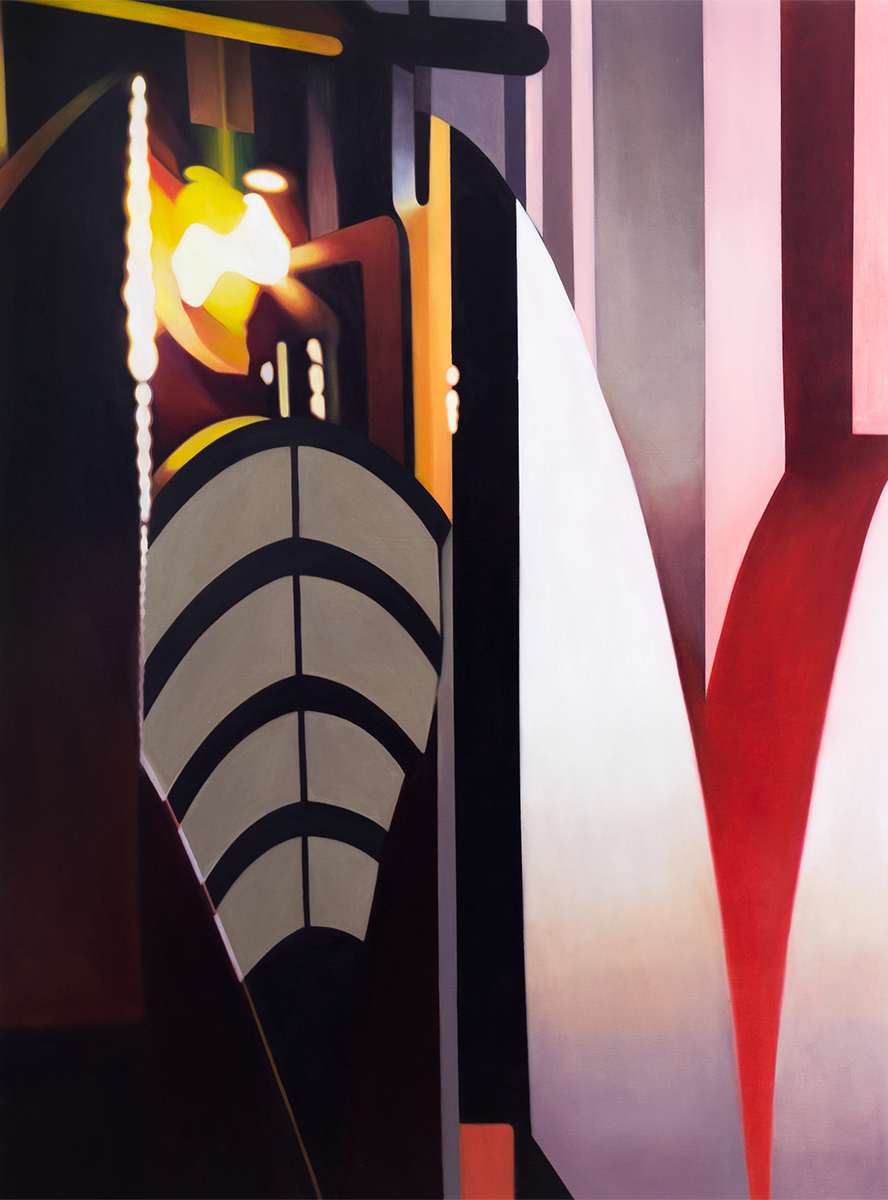
Or Pigs and Pearls
oil on panel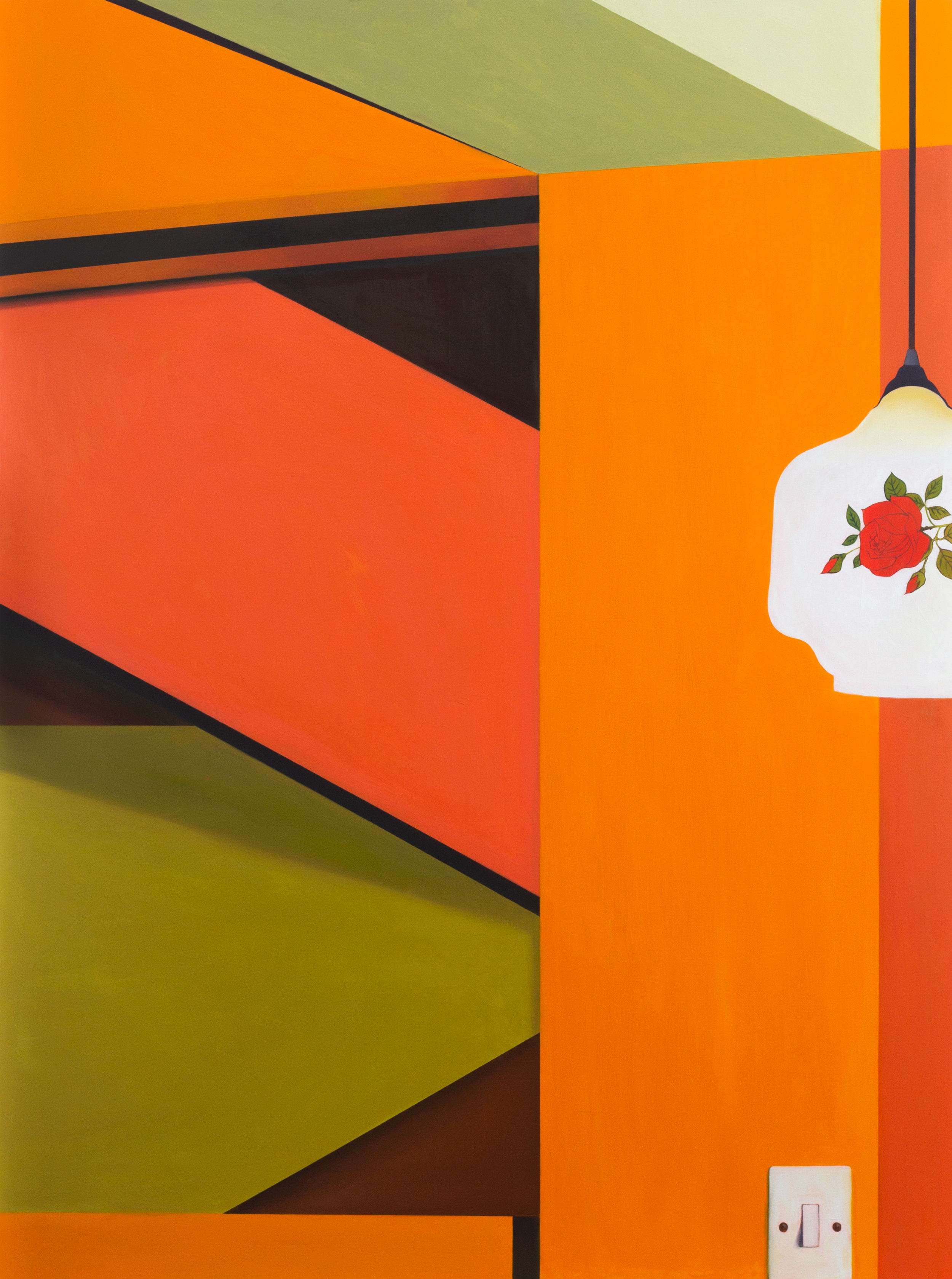
Dorm Lobby Blues
oil on panel
Cult of Personality
oil on panel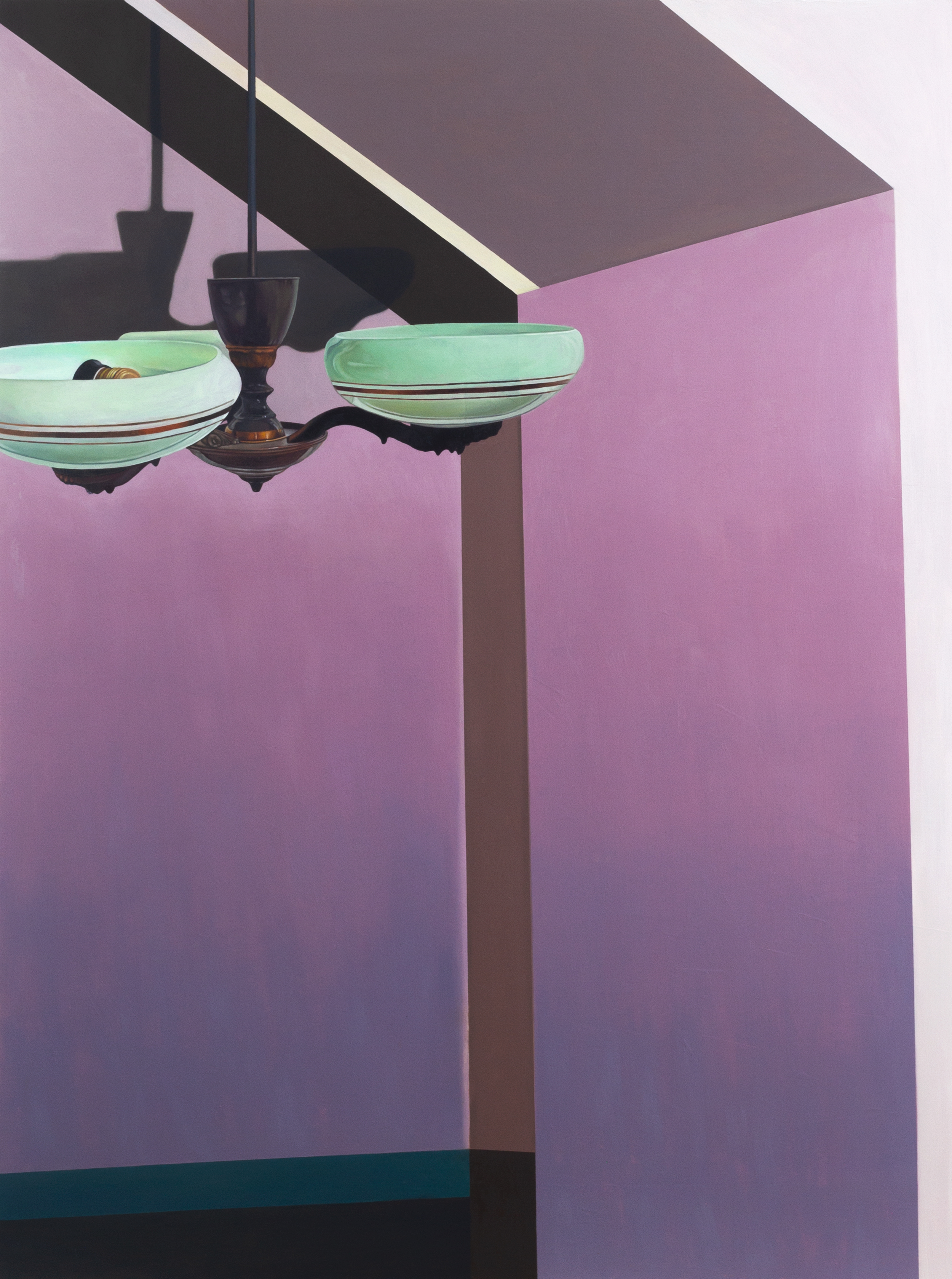
Signs of Wear
oil on panel
Using architecture and interior décor as aesthetic markers of a specific time and place, the painting series Where I Turned My Life Over and Over Again focuses on the built environments of hotels, trains, and my family’s own dwellings as transitory spaces.
Central/Eastern European interiors, domestic and the faux-domestic illusions found in hotels, speak to a departed, proto-utopian era. The combination of old-fashioned, ornamental décor with the sleek, bright, bold forms of socialist modern design is a near-perfect representation of the country of Yugoslavia itself, said to be situated both geographically and ideologically between the Eastern and Western Blocs of the Cold War era.
Utilizing the treatment of space in films such as Chantal Akerman’s D’Est and Ingmar Bergman’s The Silence, the paintings emphasize the power of an empty aesthetic and design’s quiet cultural and temporal significance. Hybrid painted forms alter and abstract architectural references from family, online archive, and state-issued photos and video footage. These features strategically reveal, through socialist modern furnishings, the intertwining of artifact and propaganda as visual testimony of the potential, persistent longing experienced by the post-communist individual: never at home and never at peace, always searching for a familiar place that isn’t there.
︎︎︎view installation
Central/Eastern European interiors, domestic and the faux-domestic illusions found in hotels, speak to a departed, proto-utopian era. The combination of old-fashioned, ornamental décor with the sleek, bright, bold forms of socialist modern design is a near-perfect representation of the country of Yugoslavia itself, said to be situated both geographically and ideologically between the Eastern and Western Blocs of the Cold War era.
Utilizing the treatment of space in films such as Chantal Akerman’s D’Est and Ingmar Bergman’s The Silence, the paintings emphasize the power of an empty aesthetic and design’s quiet cultural and temporal significance. Hybrid painted forms alter and abstract architectural references from family, online archive, and state-issued photos and video footage. These features strategically reveal, through socialist modern furnishings, the intertwining of artifact and propaganda as visual testimony of the potential, persistent longing experienced by the post-communist individual: never at home and never at peace, always searching for a familiar place that isn’t there.
︎︎︎view installation